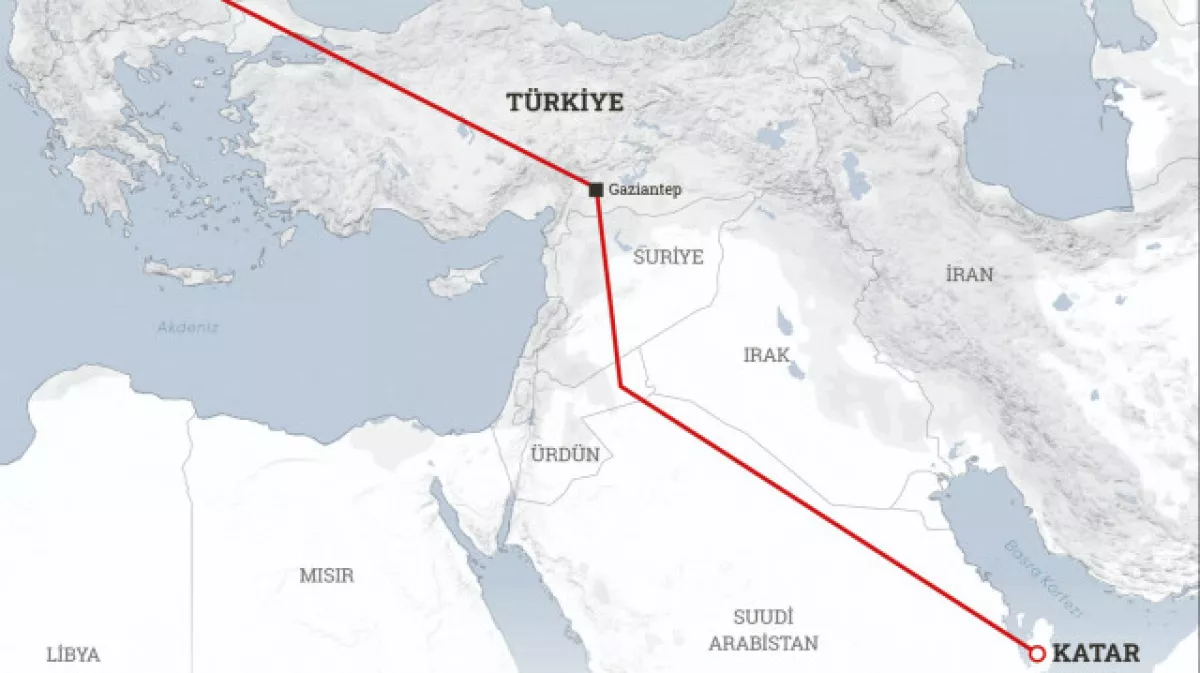Türkiye, Syria reach deal to revive Qatar-Europe gas pipeline project MAP
Türkiye and Syria have reached a landmark agreement to resume the construction of a gas pipeline that will transport Qatar’s vast natural gas reserves to Europe.
The project, initially conceived over a decade ago, was abandoned by former Syrian President Bashar al-Assad due to political tensions but is now back on the agenda amidst a changing diplomatic landscape, Caliber.Az reports, citing the Turkish newspaper Yeni Şafak.
The gas pipeline, which was initially planned to run from Qatar through Saudi Arabia, Jordan, Syria, and Türkiye, was deemed a strategic energy route for Europe. However, Assad’s government blocked the project in 2009 due to concerns over its political implications.

Fast forward to 2025, the region's diplomatic shifts and Türkiye’s growing influence in Middle Eastern geopolitics have paved the way for renewed talks. Senior officials from both Türkiye and Syria recently concluded high-level discussions in which they reached a preliminary agreement to restart the pipeline project, which is expected to be a game-changer for European energy security.
A key component of the project will be the development of Syria’s Mediterranean port of Tartus. Under the new agreement, Türkiye will operate and manage the port, positioning it as a crucial hub for transporting natural gas to Europe. The port will serve as the starting point for the pipeline's European leg, linking it to Türkiye and then on to Europe’s energy network.
The pipeline project has long been viewed as a potential economic boon for Syria, which has struggled with years of war and isolation. With the new political order in Damascus, this agreement signals a possible shift in Syria’s international relations, particularly with Türkiye and its European partners.
While the project is still in its early stages, the agreement between Türkiye and Syria represents a notable step toward regional cooperation, with far-reaching implications for energy supply routes and political alliances in the Middle East.
For now, both nations have expressed optimism about the project’s success, with a potential to transform energy dynamics across the region and into Europe.
For the record: The original gas pipeline proposal was part of broader efforts to diversify energy sources to Europe, which has been heavily reliant on Russian gas. The geopolitical importance of the project has only grown in the context of Europe's search for more stable and diversified energy suppliers.
By Khagan Isayev








